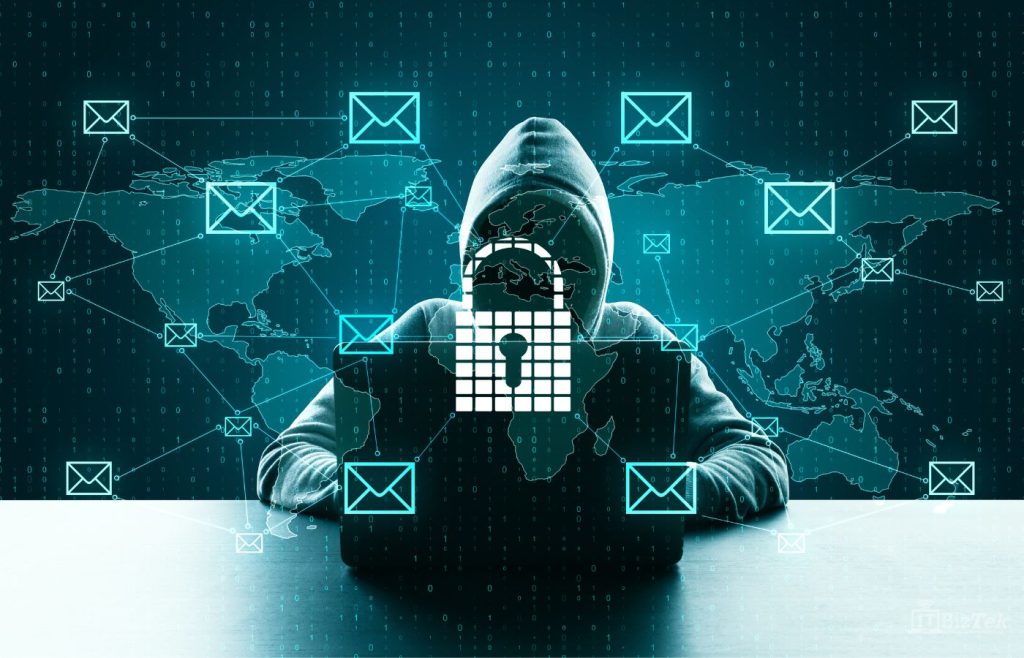Phishing emails have escalated as a prime cybersecurity threat for both individuals and businesses. With the digital domain expanding, the sophistication and frequency of these scams have increased, making them a critical concern. It’s more important than ever to engage with experienced professionals for high-level cybersecurity consulting to effectively counteract the threat of phishing scams.
Here are a few tips for how individuals and organizations can avoid falling prey to phishing.
The Basics of Phishing
Phishing involves cybercriminals sending emails that appear to come from reputable sources to steal sensitive information. These emails often lure individuals into providing personal data, financial information, or login credentials.
Evolution of Phishing Tactics
Phishing methods have evolved, leveraging technological advancements and the digitalization of communication. The COVID-19 pandemic has notably amplified phishing attempts, with a significant rise in emails exploiting the situation for malicious purposes.
Types of Phishing Attacks
Understanding the different phishing techniques is crucial for effective defence.
1. Tech Support Scams
These involve fraudsters claiming to detect malware on your computer, urging you to install software that grants them remote access, only to infect your device with actual malware.
2. Clone Phishing
Attackers duplicate legitimate emails from known entities, altering them slightly to include malicious links or attachments, tricking recipients into compromising their personal information.
3. Spear Phishing
Targeted attacks against specific individuals or organizations, where the attacker personalizes emails based on research to increase their credibility and success rate.
4. Whale Phishing
Aimed at high-ranking officials within organizations, these attacks seek to breach major security protocols for significant data theft.
Countermeasures Against Phishing
Implementing a multi-layered defence strategy is key to protecting against phishing.
Technological Safeguards
- Security Software: Use comprehensive antivirus and anti-phishing tools.
- Email Filters: Deploy advanced email filtering solutions to detect and block phishing attempts.
- Regular Updates: Ensure all systems and software are up-to-date with the latest security patches.
Human Vigilance
- Education and Training: Regularly train employees to recognize phishing attempts and follow security protocols.
- Verification Procedures: Encourage a culture of verification before responding to or acting on email requests.
- Reporting Mechanisms: Establish clear procedures for reporting suspected phishing emails.
Policy and Procedure
- Authentication Protocols: Enforce strong password policies and multi-factor authentication.
- Backup and Recovery Plans: Maintain regular backups and have a disaster recovery plan in place.
- Remote Work Security: Secure remote connections and implement strict BYOD (Bring Your Own Device) policies.
The Role of AI in Sophisticated Phishing Scams
Artificial Intelligence (AI) has become a double-edged sword in the realm of cybersecurity, particularly in the context of phishing scams. While AI can enhance security measures, it also enables cybercriminals to execute more sophisticated and convincing phishing attacks.
AI-Driven Personalization
Cybercriminals utilize AI to analyze vast amounts of data from social media, corporate websites, and breached databases. This analysis allows them to craft highly personalized and targeted phishing emails, known as spear phishing. These emails are meticulously designed to mimic the tone, style, and format of communication from trusted sources, making them significantly harder to identify as fraudulent.
Automated Phishing Attacks
AI algorithms can automate the generation and distribution of phishing emails, increasing the scale and efficiency of attacks. These algorithms can test various email formats and strategies, learning over time which are most effective at deceiving recipients. This continuous learning process enables attackers to rapidly adapt their approaches based on what yields the highest success rates.
Language Processing and Social Engineering
Advanced natural language processing (NLP) capabilities allow phishing emails to become more convincing. AI can generate content that sounds natural and contextually relevant to the recipient, reducing the likelihood of detection by traditional security measures. Furthermore, AI can be used to conduct social engineering attacks at scale, manipulating individuals into divulging confidential information or performing actions that compromise security.
Detection Evasion
AI techniques can also help phishing emails evade detection by spam filters and security software. By continuously testing and modifying the characteristics of these emails, cybercriminals can identify and exploit weaknesses in security algorithms, ensuring their malicious communications reach the intended targets.
Counteracting AI-Enhanced Phishing
The rise of AI-enhanced phishing scams requires robust and sophisticated countermeasures. Addressing this challenge involves several advanced cybersecurity strategies that align with the expertise found in top-tier IT security firms. Here’s how businesses can protect themselves against these advanced threats:
Cutting-Edge Threat Identification and Mitigation
Utilizing cutting-edge technologies for threat detection and response is critical for identifying and neutralizing sophisticated phishing attempts. Continuous monitoring of network traffic and communications allows for the early detection of potential threats. Proactive response mechanisms can then swiftly address these threats, minimizing their impact on the organization.
Securing Data Through Encryption
Encrypting sensitive data ensures its confidentiality and integrity, even if a phishing attack breaches other defences. Encryption technologies, combined with robust privacy solutions, protect critical information from being intercepted or misused. This is essential for maintaining compliance with industry regulations and preserving customer trust.
Comprehensive Security Assessments
Regular vulnerability assessments and penetration testing are vital for understanding potential weaknesses in the system that could be exploited by phishing scams. By simulating real-world attacks, businesses can gain insights into their security posture and implement necessary enhancements to fortify their defences.
Cultivating Cybersecurity Awareness Among Employees
Finally, educating employees about the latest social engineering techniques and phishing scams is crucial. Customized training programs provided by cybersecurity consulting services as well as awareness initiatives equip staff with the knowledge to recognize and respond to phishing attempts, effectively turning them into a human firewall against cyber threats.
The Role of Professional Cybersecurity Consulting
While in-house measures are fundamental, the complexity and evolving nature of phishing scams often necessitates professional expertise. Managed IT service providers and experienced cybersecurity consultants play a critical role in:
- Auditing current security measures.
- Identifying vulnerabilities and potential phishing entry points.
- Implementing tailored security solutions.
- Providing ongoing monitoring and support to adapt to new threats.
Your Takeaway
Phishing poses a significant threat, but with informed strategies and professional support, businesses can effectively mitigate these risks. ITBizTek, with its comprehensive cybersecurity solutions, exemplifies the type of expert partnership that can enhance your organization’s defence against phishing. By leveraging our expertise, businesses can safeguard their digital assets against the ever-present threat of phishing emails.
In the fight against phishing, knowledge, preparation, and professional support are your best defences. Stay informed, stay vigilant, and consider partnering with cybersecurity consulting services to protect your digital landscape. Call ITBizTek today at (416) 342 1568 to learn more about how to keep your organization secure.









